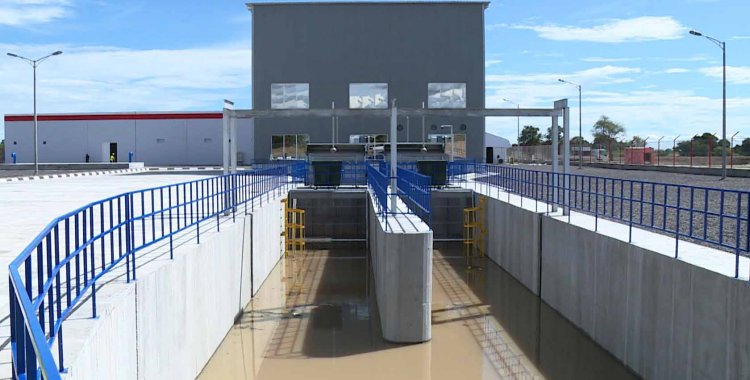During the inauguration of the project, in the locality of Cafu, João Lourenço noted that it still does not fully solve the problem of drought in the southern region.
"For me, this project represents a victory, although we cannot yet consider that the problem is solved. This project is just the beginning of a broad program that will benefit the populations that are victims of drought, not only in Cunene province but also in Namibe and Huíla", he said.
The head of state stressed that the project, which will initially benefit 250,000 citizens from various locations, means "victory over the suffering of populations".
The project, indicated João Lourenço, will cover several municipalities, with priority given to those that "are the most populous and those that have suffered the most from the drought" in Cunene.
"Attention is aimed at minimizing as much as possible the suffering of the populations of this province of Cunene, regardless of which municipality it is", he stressed.
For the years to come, the President envisaged "a profound transformation of habits and above all the habits of the populations, which were, for obvious reasons, turned mainly to pastoralism".
"Agriculture was in its infancy, but with the abundance of water that will come into existence and with the support not only of the Ministry of Agriculture, but also of some non-governmental organizations, we are going to start - in fact we have already started, this is the information I have - to train local populations, their children, on how to deal with the land, so that we can get food from the land", he underlined.
According to João Lourenço, with the amount of water now available, "there is no reason for the populations to continue to wait for food aid in the coming years, since they will have the possibility of producing their own food, not only for self-consumption (...) as well as to put them on the market, earn some money to satisfy other types of needs".
"We are working for the development of the country as a whole and here in Cunene there are projects that are underway and that will change the lives of the populations in the coming years. This is one of them, there will be more water, for there to be development we need to have two essential goods, which are energy and water", he emphasized.
In addition to the water issue, João Lourenço continued, other development projects are underway, namely the construction of 200 housing for staff, the construction of the new Ondjiva Provincial Hospital, to replace the previous one destroyed in a fire, to "reduce the needs of the populations of this province to resort to the health services of the neighboring country [Namibia]".
"This is development, not everything will come at once, Roma and Pavia were not made in one day and we believe that Cunene, five years from now, will not be the Cunene that it was five years ago", he stressed.
In turn, the Minister of Energy and Water, João Baptista Borges, said that in May 2019 the President visited the south of the country, including Cunene, and came into contact with the great suffering of the local population imposed by the prolonged drought, which affects cyclically in this region and requires high sacrifices by the population with migration to other regions and transhumance, as well as the mobilization of important resources for emergency aid, as in 2013, 2019 and 2021, which cost the public coffers hundreds of millions of dollars.
João Baptista Borges said that in 2019, following the presidential visit, guidelines were transmitted for the preparation of a program to combat the effects of drought in southern Angola, with an expected duration of implementation of about 74 months, a budget of more than of five billion dollars for the provinces of Cunene, Namibe and Huíla.
"The first priority was given to the Cafu project, which covers the most populated region of Cunene, having mobilized more than US$130 million from the national treasury for its execution", he said.
The system has an approximate length of 160 kilometers, but a presidential authorization will extend the channel and a chimpaka (water reservoirs) by another five kilometers, totaling 31, with no contractual change and the duration of three months.







